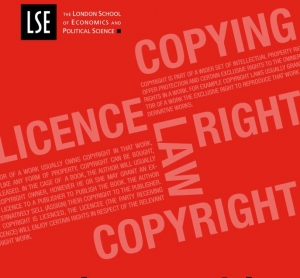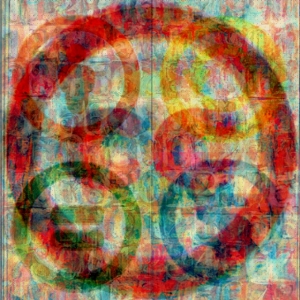 Just before the start of term there was some exciting news in the world of copyright, when the Copyright Licensing Agency (CLA)’s new higher education licence was launched. Also importantly the limit of 5% of a work has been increased to 10% – hurray I hear you say! In case you didn’t know, the CLA licence is what covers you to make photocopies for students for use in teaching, it’s a blanket licence, but there are some important limits and exclusions. The licence also covers scanning, and for many years we have offered a highly efficient Epack service (now called Scanned Readings service) in the library. So why do we do this?
Just before the start of term there was some exciting news in the world of copyright, when the Copyright Licensing Agency (CLA)’s new higher education licence was launched. Also importantly the limit of 5% of a work has been increased to 10% – hurray I hear you say! In case you didn’t know, the CLA licence is what covers you to make photocopies for students for use in teaching, it’s a blanket licence, but there are some important limits and exclusions. The licence also covers scanning, and for many years we have offered a highly efficient Epack service (now called Scanned Readings service) in the library. So why do we do this?
Well partly, because scanning readings under the CLA Licence has certain terms and conditions that must be followed such as the requirement to report every scan we deliver to students annually to the CLA. You also need to check if material is covered by the licence, and make sure you don’t copy more than one chapter from a book, one journal article from an issue or 10% of the work – which ever is greater applies. So it’s really important that staff use the Scanned Readings service so we can stay compliant with our CLA Licence. Did you know we pay a little over £7 per full time student for the licence each year, but that money is in fact returned to the authors and publishers of the work? If you write books and articles you should make sure you have registered with the Authors Licensing and Collecting Society (ALCS) as you’ll see some of that money (which compensates you for possible loss of sales) returned to you.
In addition, the Library have started using a new service delivered by the CLA with the British Library, so host the readings on a Digital Content Store, so you simply need to add links to the files from Moodle. It simplifies things but also helps ensure we can get access to readings that might have been scanned at other universities, and ultimately it will improve the quality of the readings. Please don’t think it saves time and effort by scanning readings or using PDFs you download from e-journals in Moodle. It’s breaking copyright laws but also ultimately not demonstrating to students how to use content ethically, that rewards and gives credit to the original author. And using the Reading List system is also the best way to help direct students to the resources we already pay for. If you would like to find out more about how it works with Moodle, then do get in touch with your Academic Support Librarian.
 If you are baffled by copyright and would like to find out more, then please do consider coming along to a copyright workshop we run each term, where through playing Copyright the Card Game, you can develop and test out your copyright knowledge. The next session is on Monday 14th November. Additionally if you have any queries you are also welcome to attend the Copyright Community of Practice, which runs every month, and is an informal forum for those interested in discussing copyright matters. Or you can drop a line to LTI’s Copyright and Digital Literacy Advisor, Dr Jane Secker (email j.secker@lse.ac.uk), who will be more than happy to test her own knowledge to help you figure out your copyright conundrum. So don’t just copy, copy it right, and don’t be scared of copyright, after all it offers you as an author a lot of protection, and by learning more about the law you can understand what is possible for teaching and research.
If you are baffled by copyright and would like to find out more, then please do consider coming along to a copyright workshop we run each term, where through playing Copyright the Card Game, you can develop and test out your copyright knowledge. The next session is on Monday 14th November. Additionally if you have any queries you are also welcome to attend the Copyright Community of Practice, which runs every month, and is an informal forum for those interested in discussing copyright matters. Or you can drop a line to LTI’s Copyright and Digital Literacy Advisor, Dr Jane Secker (email j.secker@lse.ac.uk), who will be more than happy to test her own knowledge to help you figure out your copyright conundrum. So don’t just copy, copy it right, and don’t be scared of copyright, after all it offers you as an author a lot of protection, and by learning more about the law you can understand what is possible for teaching and research.






